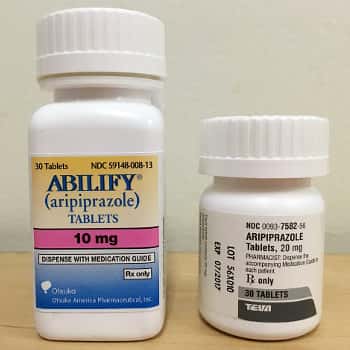
Americans spend more on antipsychotic medications than any other type of drugs, including cholesterol-lowering medicines. That’s because these pricey medications, which were originally developed to treat schizophrenia, are now being used for many other problems.
Drugs like Abilify, Geodon, Risperdal, Seroquel and Zyprexa are prescribed for a range of psychiatric conditions from autism and bipolar disorder to major depression and delirium.
The problem, according to a new study in the journal Pharmacoepidemiology and Drug Safety (online Jan. 6, 2011), is that many of these drugs are now being employed for conditions where the evidence for their effectiveness is uncertain.
Although the benefits are controversial, the risks are scary. A TV commercial for Abilify warns:
“Call your doctor if your depression worsens or if you have unusual changes in mood, behavior or thoughts of suicide. Antidepressants can increase these in children, teens and young adults. Elderly dementia patients taking Abilify have an increased risk of death or stroke.
“Call your doctor if you have high fever, stiff muscles and confusion on Abilify, as these may be signs of a life-threatening reaction, or uncontrollable muscle movements, as these could become permanent. High blood sugar has been reported with Abilify and medicines like it. In some cases, extreme high blood sugar can lead to coma or death.
“Other risks include dizziness upon standing, decreases in white blood cells which can be serious, seizures, impaired judgment or motor skills, or trouble swallowing…Talk to your doctor about the risks and benefits of adding Abilify.”
Many people glaze over when they hear such a long list of adverse drug reactions. That is especially true if the video shows people having a good time. But this is only a partial list of potential problems with such drugs.
These newer psychiatric medicines (atypical antipsychotics) can also cause substantial weight gain, headache, anxiety, insomnia, nausea, vomiting, constipation, dizziness, drowsiness, dry mouth, restlessness, heartburn, amnesia, back pain, irregular heart rhythms, fluid retention, uncontrollable facial movements and severe blood disorders.
To add insult to injury, these medicines are very expensive. A month’s supply of Zyprexa can run nearly $500, while a month’s supply of Abilify is often more than that.
For someone suffering from schizophrenia, both the financial cost and the risk of side effects may be worth accepting. But for other conditions such as bipolar disorder, alternate treatments are available which may be less problematic.
When it comes to dementia, the FDA has not approved these atypical antipsychotic drugs. In fact, the agency specifically warns that older people with dementia are at a higher risk of death from such medications.
Prescription drug commercials on television sometimes contain a lot of precautionary information. But even 30 seconds of rapid-fire warnings may not convey all a patient needs to know about a powerful medicine. When urged to “ask your doctor,” make sure you ask about all common and serious side effects before accepting a prescription.

